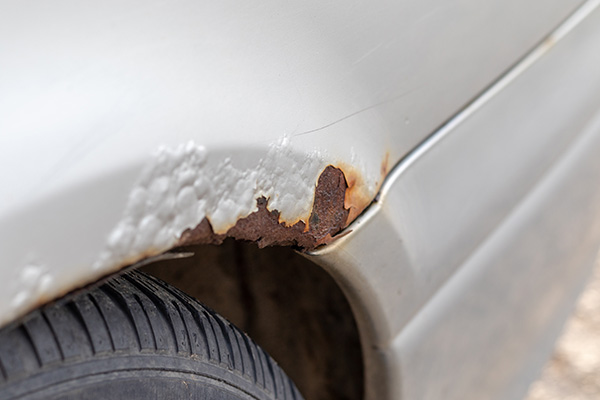
Living near the coast certainly has its perks—beautiful views, fresh air, and a laid-back lifestyle. But if you own a car in a coastal area, you might have noticed one big downside: rust. The salty sea breeze, combined with moisture in the air, can cause your vehicle’s metal components to corrode faster than usual. If left unchecked, rust can cause serious damage to your car, reducing its lifespan and affecting both safety and performance. Fortunately, there are steps you can take to protect your car from rust in coastal areas.
Why Does Salt Cause Rust
Salt is the number one culprit when it comes to corrosion in coastal regions. When salt is present, it accelerates the oxidation process. In simpler terms, salt speeds up the chemical reaction between iron in your car’s metal and oxygen from the air, resulting in rust. Since coastal areas are prone to high humidity and salt in the air, vehicles are particularly vulnerable to this process.
The salt in the air sticks to your car's surface, and when it combines with moisture, it creates the perfect conditions for rust to form. Without taking proper preventative measures, rust can spread from the exterior to more critical components, such as the undercarriage, suspension, and brake lines.
Wash Your Car Regularly
The most effective way to combat rust in coastal areas is to keep your car clean. Regularly washing your vehicle removes the salt buildup before it can cause any damage. Pay special attention to the undercarriage, wheel wells, and other hard-to-reach areas where salt can accumulate. It’s recommended that you wash your car at least once a week if you live near the coast, especially after driving on roads where salt is used, such as after a rainstorm or near the beach.
For an added layer of protection, you can use a hose with a high-pressure nozzle to thoroughly clean your car’s underside. This helps remove any lingering salt deposits that may have clung to your vehicle.
Apply a Protective Wax Coating
After washing your car, applying a layer of wax is one of the best defenses against rust. Wax creates a protective barrier between your car’s metal surface and the elements. Not only does it help prevent rust, but it also keeps your paint looking fresh and glossy.
A high-quality automotive wax repels water and makes it harder for salt and dirt to stick to your vehicle. Make sure to reapply the wax every few months to maintain this protection, especially during the rainy season when moisture levels are high.
Store Your Car in a Covered Area
Another way to prevent rust is by minimizing your car’s exposure to the salty air. Parking in a garage or under a carport can go a long way in protecting your vehicle. Even if you don’t have access to a garage, using a high-quality car cover designed for coastal climates can help keep moisture and salt from accumulating on your vehicle.
A car cover creates a barrier between your car and the environment, reducing the amount of salt that can settle on its surface. Look for covers that are water-resistant and breathable, as these will provide the best protection in humid areas.
Inspect Your Car Regularly
Prevention is key when it comes to rust. By inspecting your car regularly, you can catch early signs of rust before they become bigger problems. Pay close attention to any chips in the paint, as exposed metal is more susceptible to corrosion. If you find any, be sure to treat and repaint the affected area as soon as possible.
Check for rust spots in hidden areas, such as the wheel wells, undercarriage, and around the door sills. Addressing rust in its early stages is much easier—and cheaper—than dealing with widespread corrosion later on.
Want to make sure your car stays rust-free? Import Auto Specialists has you covered with maintenance, inspections, and rust-proofing solutions that will keep your vehicle running for years, even near the coast. Schedule your appointment today!